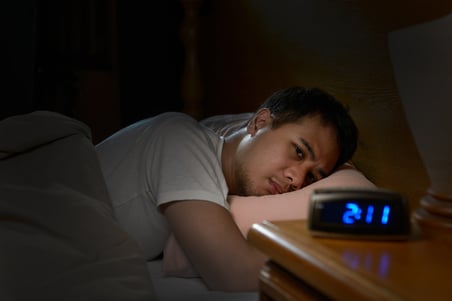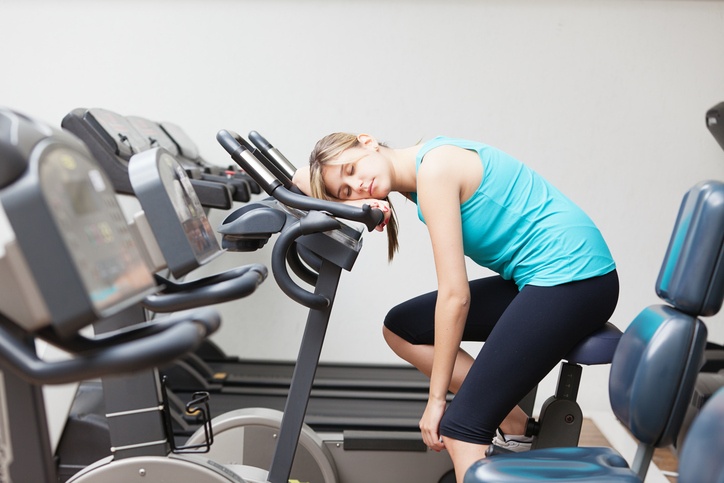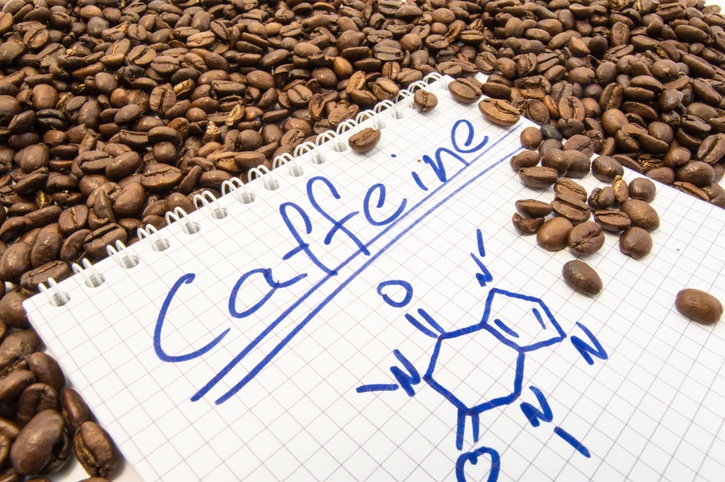By this point, everyone has  heard that exercise is good for health. The fitness industry has been growing significantly over the past decade. As of 2017, there were more than 200,000 health and fitness clubs worldwide, which is up from nearly 130,000 clubs in 2009. Clearly, fitness is becoming a huge part of peoples’ lives. But why are we seeing this massive growth in the industry, and in what ways is it improving health?
heard that exercise is good for health. The fitness industry has been growing significantly over the past decade. As of 2017, there were more than 200,000 health and fitness clubs worldwide, which is up from nearly 130,000 clubs in 2009. Clearly, fitness is becoming a huge part of peoples’ lives. But why are we seeing this massive growth in the industry, and in what ways is it improving health?
The Physical Benefits
The physical benefits of increased activity include the following.
![GettyImages-627455550-[Converted]-new](https://www.nifs.org/hs-fs/hubfs/GettyImages-627455550-%5BConverted%5D-new.jpg?width=402&name=GettyImages-627455550-%5BConverted%5D-new.jpg)
Increased Muscle Mass
A well-known benefit to working out is increased muscle mass. This alone has so many benefits to your health besides the visual appeal that people seek. Muscle is a huge driver for metabolism. In fact, it takes so much energy to maintain muscle mass that having more of it increases metabolism significantly, even at rest.
Improved Bone Health
Most people hit peak bone mass in early adulthood. After we hit our peak, our bone density begins to decline. Several factors go into how much we build before we hit our peak and how fast we fall once over that peak. And of course, exercise is a huge factor in this. Weight-bearing activity that forces you to challenge gravity is huge in preserving or even building bone density by breaking down the bone so it can build back even stronger.
Better Sleep
Exercise can improve sleep quality by expelling built-up energy. Another way sleep improves is the cycle of body temperature brought on by exercise. During activity the temperature increases; once activity has stopped the temperature gradually decreases, causing chemicals to be released that promote drowsiness.
Increased Energy and Stamina
In the short term, exercise increases blood flow throughout the body to improve energy. Over time, exercise causes improvements in cardiovascular health, allowing the heart to pump more oxygen-rich blood throughout the body, therefore increasing energy.
Reduced Cholesterol
When exercise, weight loss, and dietary intervention are combined, the LDL (bad) cholesterol levels decrease while HDL (good) cholesterol levels increase.
Decreased Risk of Chronic Diseases
If you’ve ever heard the phrase “exercise is medicine,” it will be no surprise that exercise actually reduces the risk of chronic diseases. Various things happen in the body to cause this, but the most important is that by getting active, the chances of developing Type 2 Diabetes, some cancers, stroke, heart disease, and more are drastically reduced.
Increased Coordination and Balance
By staying active, people learn how to be more coordinated and balanced. Motor control over movements becomes more natural the more it is practiced, and will translate to real-life scenarios. In the long run, especially through aging, this is beneficial to help prevent falls and the negative consequences, such as fractured bones, that come along with them.
The Mental Benefits
The mental benefits of increased activity include the following.
- Stress relief
- Positive mood
- Improved mental alertness
- Reduced anxiety and depression
- Improved self-esteem
- Increased cognitive function
Most of these improvements occur due to the increased blood flow to the brain, which acts on the hypothalamic-pituitary-adrenal (HPA) axis. This area of the brain interacts with several other regions, including the limbic system, hippocampus, and amygdala, which are correlated with motivation, mood, and responses to stress. Other noted improvements may be explained by providing distraction, improving self-efficacy, and increasing social interaction. Research shows that exercise can improve cognitive function by promoting neuroplasticity. By staying active throughout adulthood and senior years, cognitive decline can be prevented.
Although many mechanisms go into this complicated process, one thing that is known is that the rate of neurogenesis, or the production of new neurons, is greatly increased by exercise. This may be the result of increased blood flow to the brain during exercise, with an abundance of oxygen and nutrients.
Other Benefits
A lot of benefits that come from exercise can be measured or researched. Some benefits are harder to measure but still occur. We learn how to set realistic yet challenging goals, learn the discipline needed to accomplish those goals, and learn more about ourselves. We can gain a better understanding of how much we can push ourselves and improve our mind-body connection.
How Much Should You Work Out?
The current Physical Activity Guidelines for Americans outlines the recommended amount of activity for different age groups. Adults should do at least 150 to 300 minutes of moderate-intensity aerobic exercise, or 75 to 150 minutes of vigorous aerobic exercise a week. Most health benefits can start to be seen at the minimum amount; however more benefits are seen beyond 300 minutes of activity a week. Adults should also do some type of resistance-training exercise at least two days of the week.
At NIFS, we have multiple group fitness classes every day to help you reach your goals and hit the minimum requirements. Check out the group fitness schedule for 30–60-minute classes to help you achieve at least 150 minutes of exercise a week.
This blog was written by Hannah Peters, BS, CPT, Health Fitness Instructor. To learn more about the NIFS bloggers, click here.



 I was recently chatting with my brother Tim about work stuff in a conversation filled with multiple shop-talk topics. You see, he is an assistant chief of a pretty large fire department, and we share common goals and challenges when it comes to managing a crew. Needless to say, our conversations can get quite lively and the ideas are always abundant.
I was recently chatting with my brother Tim about work stuff in a conversation filled with multiple shop-talk topics. You see, he is an assistant chief of a pretty large fire department, and we share common goals and challenges when it comes to managing a crew. Needless to say, our conversations can get quite lively and the ideas are always abundant. How often is it that you hear someone say, “Man, that was a great night’s sleep!” or “I slept like a baby!”? Not as often as we would like to hear, I would say! Being tired and feeling sluggish seems to be the new normal. According to the
How often is it that you hear someone say, “Man, that was a great night’s sleep!” or “I slept like a baby!”? Not as often as we would like to hear, I would say! Being tired and feeling sluggish seems to be the new normal. According to the  Think for a minute. When was the last time you intended to go to bed early only to “check your feed” one last time, then suddenly—BAM!—you have lost 30 minutes to Facebook? Or when you were talking with a friend only to be distracted by the all-too-familiar “bing” of your phone alerting you to a new message that you just had to peek at?
Think for a minute. When was the last time you intended to go to bed early only to “check your feed” one last time, then suddenly—BAM!—you have lost 30 minutes to Facebook? Or when you were talking with a friend only to be distracted by the all-too-familiar “bing” of your phone alerting you to a new message that you just had to peek at?
 Getting healthy and losing weight go hand in hand. If your goal is to get healthy and lose weight, I need you to RELAX! No, really! Relaxing is good for you, and managing stress effectively doesn’t only help with weight loss; it makes us healthier overall. So sit back, relax, and read on for more tips.
Getting healthy and losing weight go hand in hand. If your goal is to get healthy and lose weight, I need you to RELAX! No, really! Relaxing is good for you, and managing stress effectively doesn’t only help with weight loss; it makes us healthier overall. So sit back, relax, and read on for more tips.
 Most of us are aware that the number of Americans diagnosed with diabetes is increasing, but so is the number of us at risk.
Most of us are aware that the number of Americans diagnosed with diabetes is increasing, but so is the number of us at risk.  We’re not quite there yet, but it’s just around the corner. Soon the days will start to become shorter and the supermarket aisles will be full of school supplies. That routine you had down for summer is about to change because it’s back-to-school time!
We’re not quite there yet, but it’s just around the corner. Soon the days will start to become shorter and the supermarket aisles will be full of school supplies. That routine you had down for summer is about to change because it’s back-to-school time! Do you wake up feeling tired? Well, you’re not alone. One in every three Americans does not get
Do you wake up feeling tired? Well, you’re not alone. One in every three Americans does not get  Like most people, I’m busy: full-time job, kids, a house… and in my “spare time,” I’m a high school tennis coach and play a lot of tennis. A few years back I started having issues with exhaustion (go figure). Right around 4pm I would just be overcome with complete, hit-the-couch, exhaustion. The only way to make it through the rest of my busy day seemed to be one more caffeinated drink.
Like most people, I’m busy: full-time job, kids, a house… and in my “spare time,” I’m a high school tennis coach and play a lot of tennis. A few years back I started having issues with exhaustion (go figure). Right around 4pm I would just be overcome with complete, hit-the-couch, exhaustion. The only way to make it through the rest of my busy day seemed to be one more caffeinated drink.